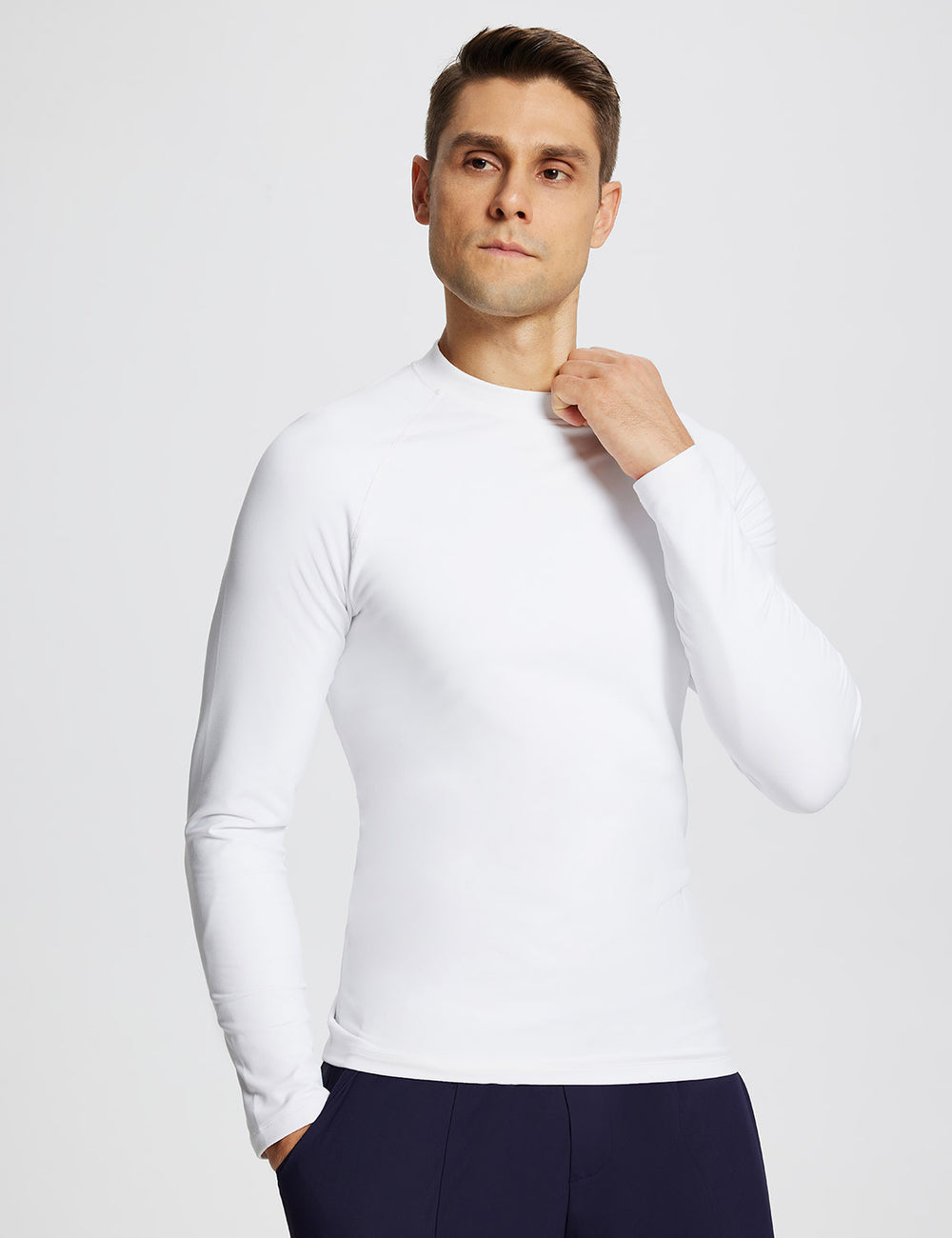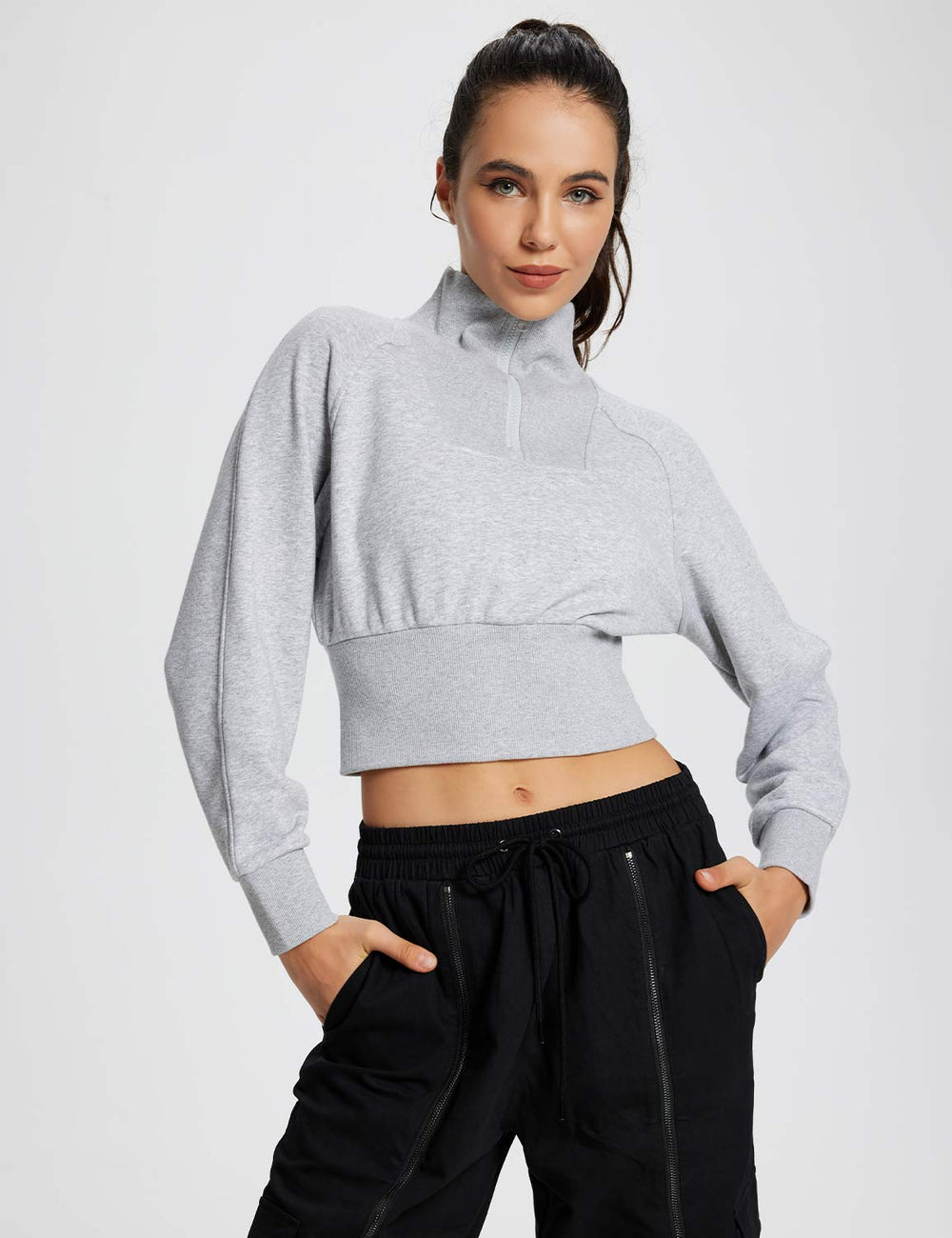
Your Ultimate Guide to Choosing the Best Thermal Tops
When the first snow falls, we know that the whole landscape will soon become a velvet blanket of white. While the scene may be reminiscent of melancholia, considering the frigid temperatures, we know we need to gear up and start layering to stay toasty and warm for the winter season. So we give you your ultimate guide to choosing the best thermal tops.
What are thermal tops?
Thermal wear is usually a base layer—long-sleeve base layer or thermal pants —we wear underneath our main outfit or regular clothes, whether sportswear or everyday wear. They help our body stay warm by retaining heat during the tundra-like seasons. They are way better than our regular shirts because of their unique material for retaining heat while letting moisture out and their lightweight feel to avoid that heavy feeling winter clothing is notorious for.
Staying warm while working out or training in the field, running in the cold morning dew before sunrise, or simply commuting to the office, Baleaf understands how important it is that we wear the right thermal top so that we can stay warm, move freely, and let our skin breathe properly. So how do we pick the right thermal top to stay cozy during the cold seasons?
Pick a great base layer.
Base layers for winter are vital essentials in your closet. If you spend a lot of time outdoors, like going to work, jogging, or skiing, you’d need to layer up with fleece-lined leggings, thermal leggings, or a thermal crew neck t-shirt, to name a few. They are worn under our main clothing to help us stay warm. With soft fleece lining to trap heat and moisture-wicking ability, no winter chill can stop us from having fun outside.
Layer them with a wool sweater, dress, or water-resistant hooded softshell windbreaker, to give a hint of some of the base layer’s color or print. You’ll definitely feel much more comfortable outside and won’t be clammy when indoors either.
Choose fabrics that cling but don’t constrict.
It’s important that we get the right or even perfect fit when buying a base layer. The best thermal tops offer a close fit and cling to the body to prevent bunching or rolling up. But it’s equally important to note that they should not be constricting in any way. If they’re too tight, they can create heat pockets that can make certain areas of the body feel acutely cold because moisture or water is retained.
The best thermal tops skim through the body and take the shape of our curves without any feeling of pressure from the base layer. The rule of thumb is that they should feel like a second skin.
Choose those with moisture-wicking ability.
Even when the temperature goes negative, we still sweat under our layers of clothing. It’s our body’s way of regulating its temperature. This is why it’s important to read the label or product description of thermal tops. They should be made of fabric with moisture-wicking ability.
What is moisture-wicking and why is it important? Moisture-wicking clothing lets moisture be “pulled” from the inner layer of the material to the outside to let sweat evaporate. When sweat lingers for too long on our bodies, our clothing will retain the water. Thus, we’d feel humid and stuffy, and worse, even cold, which is the last thing we want to feel during the cold seasons. Moreover, thermal tops with moisture-wicking ability dries faster and lets our skin breathe.
Go seamless.
For base layers, many of us know our own fitting and the fabric we need to look out for when buying them. However, many of us often forget to check out the seams. Choosing seamless thermal wear is important because it sits closely to our skin. As such, any rough or heavy seam tailored inside can cause irritation, abrasion, or chafing, to name a few. Ideally, buy thermals that are seamless for your added comfort.
Identify your activity.
The thermal top you’ll wear depends on your planned activity and sensitivity to colder temperatures. So if you feel cold easily, it’s best to choose warmer thermal wear, like a thermal hoodie to protect your head from the cold as well.
In places of extreme cold temperature, it is vital that you layer your thermal with other insulating outerwear, such as a puffer jacket, sweater, or fleece-lined pullover, and the like.
Likewise, if you are doing an outdoor activity like climbing or lifting weights at the gym, then a thermal thumbholes pullover is your best bet to prevent your sleeves from rolling up or bunching. It also protects your palms from getting bruised, especially when pushing on rough surfaces.
Stay toasty in style.
While thermal tops are usually worn during the cold season, they’re actually as versatile as most pieces of clothing because they can be worn as standalone tops and paired with or layered on some of the regular clothes we have in our closet.
In addition, most clothing companies, like Baleaf, are now more aware that winter clothing doesn’t have to be drab. Now, we can see various styles, colors, and designs to suit our tastes. From neutral tones to vibrant hues, there’s a thermal top to match every fashion preference or liking.
For days when the temperatures are a bit tolerable, you can go for a thermal hooded crop pullover or a half-zip pullover and look stylish while beating the cold weather.
Layer it up.
Because layering is the key to staying warm during winter, it’s best to pick thermal tops and regular clothing that complement each other, so we can look fab even in the middle of a drizzle.
Street style fashion has shown how layering using brightly colored tops and turtlenecks can be statement pieces we can incorporate into our winter ensemble. Bright colors can combat the dreary atmosphere that winter may bring. Start with a button-up shirt or a wrap jacket for that hint of color, or let the turtleneck take the limelight layered under an open blazer or coat.
Feel Warm Even in Winter
Baleaf is keen to understand that great thermal tops do more than give warmth. Nobody wants to look all puffy and bulky in layers of winter clothing we’d be able to use for only one season. So are you ready to layer up?






